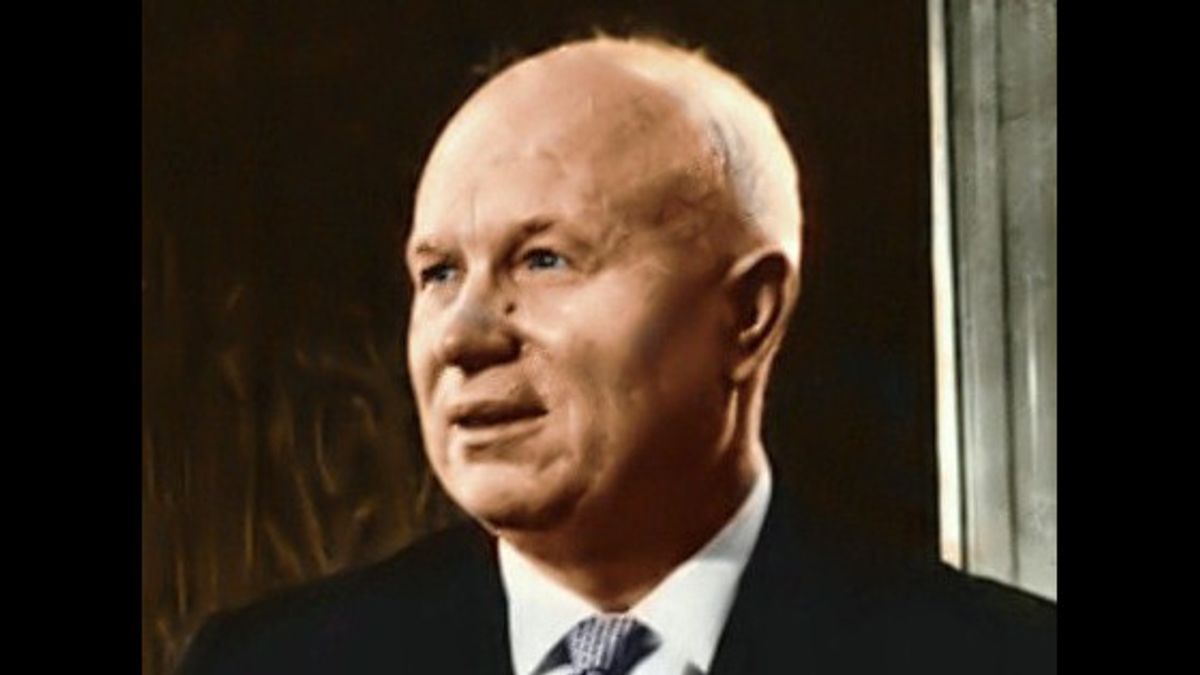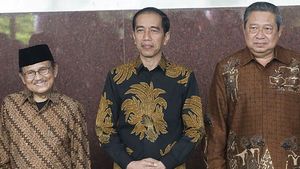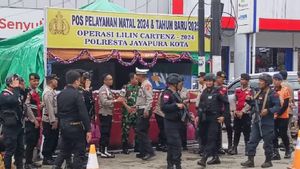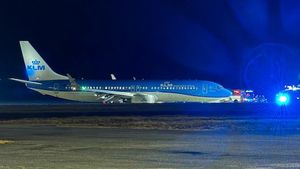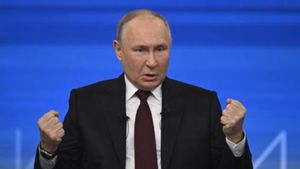JAKARTA - In a long interview with an American reporter, the leader of the Soviet Union Nikita Khrushchev claimed his country had missiles superior to its rival the United States (US), he even challenged holding a "missile shooting match" to the US to prove his claim. The interview then sparked fears among Americans that their country was falling behind by the Soviets in the arms race.
As quoted by History, Khrushchev's attitude in the interview was considered ambiguous. On the one hand it evokes an attitude of arrogance and often shows its dominance, but on the other hand it is a call for "peaceful coexistence" with Western countries. And that attitude did characterize him during the late 1950s.
The leader of the Soviet Union in the early days of the Cold War continued to boast about the missiles belonging to his country while taunting the US that his rival country did not have intercontinental ballistic missiles. "If he had, he would launch his own sputnik," he scoffed.
It was only after mocking his rival that Khrushchev threw a challenge to the US. "Let's have a peaceful rocket contest like a gunfight. And they will see for themselves," he said.
Although he often puffed out his chest, Khrushchev had stated that the American and Soviet people both wanted peace. He warned, however, that although the Soviets would never start a war, there would be "madmen" who might lead to conflict.

In particular, Khrushchev noted that Secretary of State John Foster Dulles had created an artificial psychiatric war. And the war, he said, would end "on the American continent, which our rockets can reach," Khrushchev said.
He also said NATO troops in Europe would be destroyed, and Europe "may really become a grave," Khrushchev said. And at that time, he continued, the Soviet Union with the power of communism will destroy capitalism.
Khrushchev's statement was widely discussed after a report called the Gaither Report was leaked to the public. The report supports the many views of the Russian leadership, who accuse the US of lagging far behind the Soviets in the arms race.
The debate about US lagging the USSR continued into the early 1960s. This became the main problem and even became the campaign narrative in the 1960 presidential election between Richard Nixon and John F. Kennedy.
The English, Chinese, Japanese, Arabic, and French versions are automatically generated by the AI. So there may still be inaccuracies in translating, please always see Indonesian as our main language. (system supported by DigitalSiber.id)
